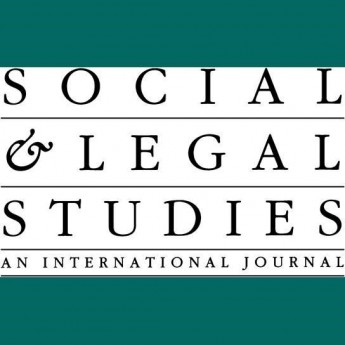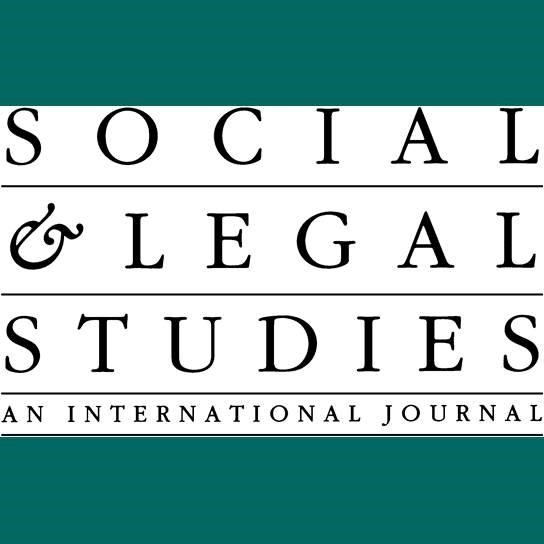Anna Bull
Lecturer in Education and Social Justice
University of York
In autumn 2021, the Al Jazeera Investigative Unit published a series of stories called Degrees of Abuse, which focused on sexual misconduct by academic staff at UK universities. It ‘reveal[ed] why students say university complaints systems are stacked against them’ and outlined the impacts on the lives of students and staff of trying to speak out against misconduct. Building on the momentum from Al Jazeera’s reporting, activists at Oxford University organised the ‘Transforming Silence’ conference in February 2022 which, drawing on Sara Ahmed’s book Complaint!, explored ‘how complaint policies and procedures reproduce the power disparities that make complaints necessary’. In this context, my article (co-authored with Tiffany Page) in Social and Legal Studies ‘The Governance of Complaints’ (open access) was published, addressing a similar issue to the Al Jazeera coverage: whether students who are subjected to sexual misconduct from higher education staff can obtain remedy or justice from their institutions.
Remedy can be defined as ‘any of the methods available at law for the enforcement, protection, or recovery of rights or for obtaining redress for their infringement’ (Law, 2018: 932). Drawing on interviews with 15 women who had been subjected to staff sexual misconduct in UK higher education and had attempted to report this to their institution, the article described how these women’s reporting experiences unfolded in one of four ways. A first set of interviewees were unable even to get their institution to take any formal action on their report, and therefore were unable to access any remedy. A second group were involved in reporting processes as witnesses or bystanders – even if they themselves had also been subjected to misconduct – but as they were not the primary complainant they received no remedy or outcome to their complaint.
For a third group of complainants, while formal complaints processes were set in motion within their institutions, they were unable to get to the end of the process and thus unable to obtain justice or remedy. For one interviewee this was because the process was so protracted and distressing to the student that she became suicidal and was unable to continue onto the third and final round of complaint within her institution. Another complainant in this group found her complaint was concluded without her permission in a settlement between the lecturer and the university that allowed him to remain in post.
The fourth and final set of interviewees comprised four women who did in fact obtain remedy from their universities, although at great cost to themselves due to protracted, distressing complaints processes and in one case a legal battle. These remedies were primarily financial and although such compensation was not unwelcome, financial remedy was not what they were seeking. Instead, as outlined in Bull (2022), complainants primarily reported to keep themselves and others safe from the staff who had targeted them. They therefore felt that justice – and remedy – needed to involve ensuring that this couldn’t happen again. Foreshadowing the issues revealed by Al Jazeera, we argued that ‘this highlights an issue with the individualised nature of complaints processes for dealing with systemic issues where multiple students and/or staff are likely to be targeted by the same harasser’, highlighting the problem with individualised ‘remedies’ for discrimination issues.
As noted above, Sara Ahmed has also written brilliantly on the lived experience of making complaints of sexual harassment and other discrimination-related issues in her book Complaint (2021). However, she does not explore the policy and administrative justice framings that shape the experiences of making complaints. Our article – along with Bull et al. (2020) and forthcoming work – goes some way towards explaining why the policy and institutional structures that underpin higher education governance in England and Wales are proving to be inadequate in addressing this issue. To this end, the article contextualised these questions of ‘remedy’ and justice in relation to current policy provisions in this area, by asking why students – who were overwhelmingly dissatisfied or even traumatised with the process of attempting to report staff sexual misconduct to their institution – did not access the services of the Office of the Independent Adjudicator for Higher Education (OIA). The OIA is the body overseeing complaints processes in England and Wales, but strangely it has been subjected to very little critical scrutiny from academics. The OIA describe remedy in the context of student complaints in the following way:
The remedy might be an apology, an explanation of any actions the provider has taken as a result of learning from the complaint, or an academic or financial remedy, depending on the nature of the concern, the impact on the student, and what the student is seeking.
Office of the Independent Adjudicator for Higher Education, 2018
While this statement looks good at first glance, three problems with it became apparent from our research. First, the OIA was inaccessible to most students due to their being unable to reach the end of their internal university complaints processes – a prerequisite for accessing the OIA’s services (and this was especially an issue for international students on time-limited visas). Second, even for the minority who were able to get through the complaints process, the OIA didn’t offer what they needed – protecting themselves and others from harassment and victimisation. Third, institutions were not in fact offering the broad range of remedies outlined above and the OIA were not directing them to do so; the one interviewee in this study who did access the OIA obtained financial compensation of £5,000 only. She would have welcomed ‘an explanation of any actions the provider has taken as a result of learning from the complaint’ but this was not forthcoming even after the OIA’s intervention, and the lecturer who had harassed her and led to her leaving the institution remained in post.
The data for this article was collected in 2017 and discusses reporting that occurred over the ten years prior to that. Since then, however, there has been a significant level of policy and practice focus on sexual misconduct in HE, and some institutions have put substantial resources into addressing this issue, although predominantly focusing on student-student rather than staff/faculty sexual misconduct. There remains an inadequate institutional and policy framework for tackling staff/faculty sexual misconduct. Indeed, after the Al Jazeera coverage, our campaign group The 1752 Group led on an open letter to relevant UK organisations asking for guidance to be devised on how higher education institutions should handle multiple complaints about the same person or group complaints, and while we had a good initial response, since then no progress has been made.
This issue isn’t going away. My current research project ‘Higher Education After #MeToo’, with Erin Shannon, is gathering more recent accounts of students’ and staff attempts to report sexual misconduct, as well as perspectives of staff within HEIs who are handling these reports, in order to understand the limits and possibilities of complaints processes in tackling this issue. The issue of justice and remedy continue to be important themes in these interviews. It seems appropriate, therefore, to finish with the words of one interviewee describing what she wanted from reporting:
Just [to] guarantee that this won’t happen to anyone else. […] My whole motivation was not to get anything [for] me. I’m done, I’ve finished my PhD and I have my thesis. I don’t care; I don’t want vengeance, I just don’t want it to happen to anyone else. That hasn’t been met.
Interviewee, Higher Education After #MeToo’
Read more by this author
Bull, A., Page, Tiffany, & Bullough, J. (2019). What would a survivor-centred higher education sector look like? In S. Gamsu (Ed.), A New Vision for Further and Higher Education (pp. 73–82). Centre for Labour and Social Studies.
Page, T., Bull, A., & Chapman, E. (2019). Making Power Visible: “Slow Activism” to Address Staff Sexual Misconduct in Higher Education. Violence Against Women, 25(11), 1309–1330.
Bull, A., Calvert-Lee, G., & Page, T. (2020). Discrimination in the complaints process: Introducing the sector guidance to address staff sexual misconduct in UK higher education. Perspectives: Policy and Practice in Higher Education, 25(2), 72–77.
Bull, A., & Page, T. (2021). Students’ accounts of grooming and boundary-blurring behaviours by academic staff in UK higher education. Gender and Education, 1–16. (open access)
Oman, S., & Bull, A. (2021). Joining up well-being and sexual misconduct data and policy in HE: ‘To stand in the gap’ as a feminist approach. The Sociological Review, 00380261211049024. (open access)
Bull, A. (2022). Catalysts and rationales for reporting staff sexual misconduct to UK higher education institutions. Journal of Gender-Based Violence.
Bull, A., & Page, T. (2022). The Governance of Complaints in UK Higher Education: Critically Examining ‘Remedies’ for Staff Sexual Misconduct. Social & Legal Studies, 27-49. (open access)
About the author
Dr Anna Bull is Lecturer in Education and Social Justice at the University of York, and co-director of The 1752 Group, a research and campaign organisation working to address staff sexual misconduct in higher education. Anna was an academic advisor to the National Union of Students for their report Power in the Academy: staff sexual misconduct in UK higher education and co-authored The 1752 Group and McAllister Olivarius’ Sector Guidance to address staff sexual misconduct in UK higher education. She is currently Principle Investigator on ESRC New Investigator project Higher Education After #MeToo.
References
Ahmed, S. (2021). Complaint! Duke University Press Books.
Bull, A. (2022). Catalysts and rationales for reporting staff sexual misconduct to UK higher education institutions. Journal of Gender-Based Violence.
Bull, A., Calvert-Lee, G., & Page, T. (2020). Discrimination in the complaints process: Introducing the sector guidance to address staff sexual misconduct in UK higher education. Perspectives: Policy and Practice in Higher Education, 25(2), 72–77.
Law, J. (2018). A Dictionary of Law. Oxford University Press.
Office of the Independent Adjudicator for Higher Education (2018) The Good Practice Framework:

